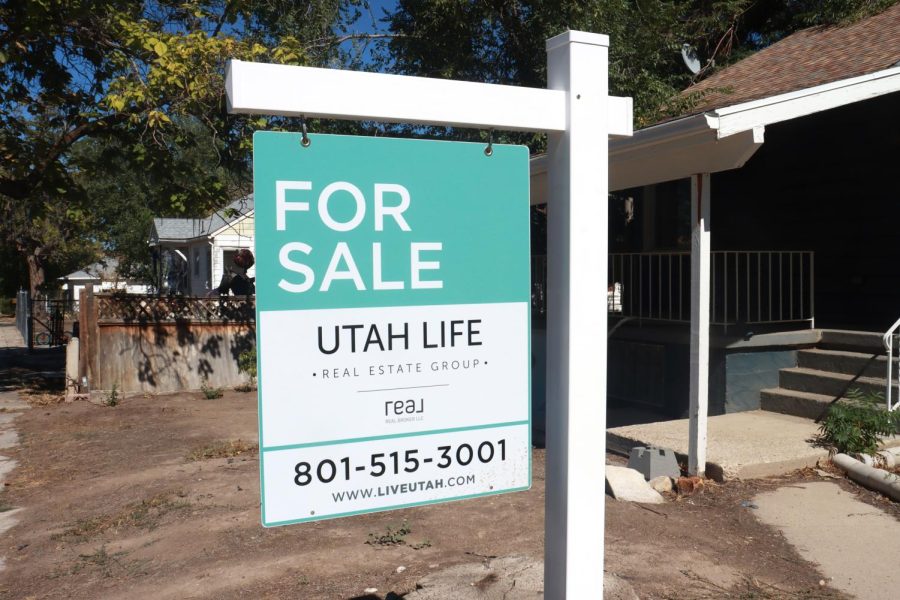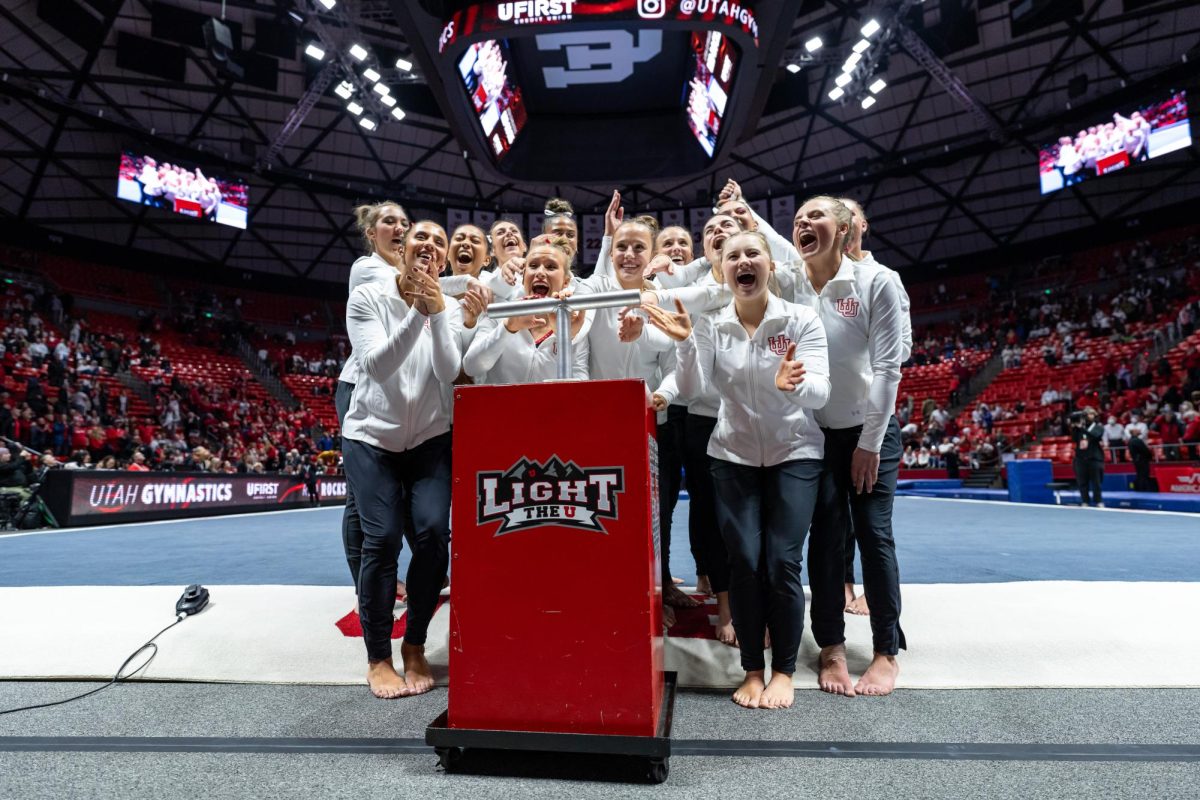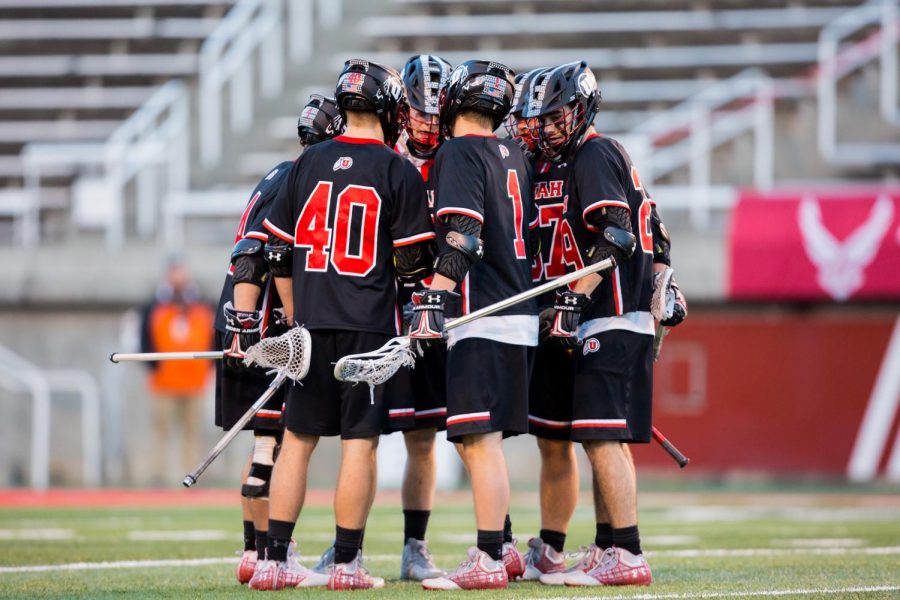Lien: While Rent Increases, Our Morals Decrease
A for sale sign posted in front of a residence in Magna, Utah with contact information and a website for the realtor on Sept. 24, 2022. (Photo by Sarah Karr | The Daily Utah Chronicle)
September 30, 2022
I recently received an email saying my rent will go up this month, which I expected — but I didn’t expect a $300 increase. My living space is clearly low-income housing: there’s water damage in my bathroom, and no matter how much we spray, there’s always bugs. But it’s been my home for the past year, and while the rising cost stresses me out, the notion of searching for a new place is terrifying.
I’m grateful the increase wasn’t more, but even $300 will make a dent in my monthly budget. To offset the increase in bills, I thought about pursuing a higher position at work, taking on extra shifts and getting a seasonal job. But my rent increase relates to a far greater issue of pricing out inhabitants in poor neighborhoods.
Landlords in Utah exploit the poor, and we’re headed towards a substantive homeless population with little resources available to help them.
Housing Market
The state of Utah’s housing market is disastrous. Prices are higher than ever, but houses are staying on the market for far longer than expected. As of August in Salt Lake County, realtors “are selling about 400 fewer homes a month than the 10-year average.”
Opposite the housing market, the American Journal of Sociology found that landlords who make large profits rent out properties in the slums. Renters in poor neighborhoods are exploited far more than those in affluent areas due to high rent prices, poor infrastructure and nonpayment from the poor. While repairs are more common in the slums and rent gets frequently missed, the profit of landlords is still significantly higher in poor neighborhoods.
Slums are a “prime moneymaker” for those who profit from land scarcity, racial segregation and deferred property maintenance. The poor and minority populations experience the highest rates of housing exploitation. New apartment complexes are being built incredibly quickly, but they are intended to appeal to rich clientele instead of the average renter. Paying for housing has become nearly impossible, and the idea of living by oneself is laughable.
Rents in Utah have reportedly increased faster in the last 2 years than in the last decade. Salt Lake City is the 54th most expensive city, with the median for a one-bedroom costing $1,280/month and two-bedroom unit costing $1,670/month.
One in five Utah renters are considered “severely cost-burdened,” which means they pay more than 50% of their income on rent. Many renters have put buying a house on the “back burner,” because even the idea of owning a home in this economy is far-fetched.
Prices Push People into Homelessness
The rising costs of living force people into homelessness. Inflation affects prices, but wages aren’t going up. Homelessness has been an issue in Utah for years, and seemingly nothing alleviates the problem. There’s just nowhere to go. People choose to camp in empty parking lots instead of staying in shelters due to infection outbreaks. Shelters are seeing an increase in families with well-paying jobs that cannot find affordable places to live. Accommodation has been scarce since the city tore down the Salt Lake City Road Home in 2018, with new shelters offering less beds. And since 2016, the homeless population has increased by 250%.
In a move that absolutely does not help this issue, Mayor Mendenhall moved a tent city away from Main Street, pushing people away from the community they created. Notably, her husband is a real estate developer in the process of building a project a block and a half away from Main Street.
As others have previously noted, homelessness in Utah is a crisis affecting the general population and U students alike. The way those who are unsheltered are treated is a crisis itself, as hostile architecture inhibits people from finding hospitable places to stay.
A sense of shame follows those who are unhoused, placing the blame on the individual rather than the system and unexpected situations. People do not choose to be homeless, yet the resounding rhetoric surrounding homelessness reinforces the belief that it’s a decision.
Real estate and landlords exploit the poor for their own gain and it’s incredibly immoral and cruel. Never before had I genuinely worried about being homeless, but now it can affect anyone regardless of tax bracket. Providing for oneself is quickly becoming an incredibly difficult task, and it really shouldn’t be.













